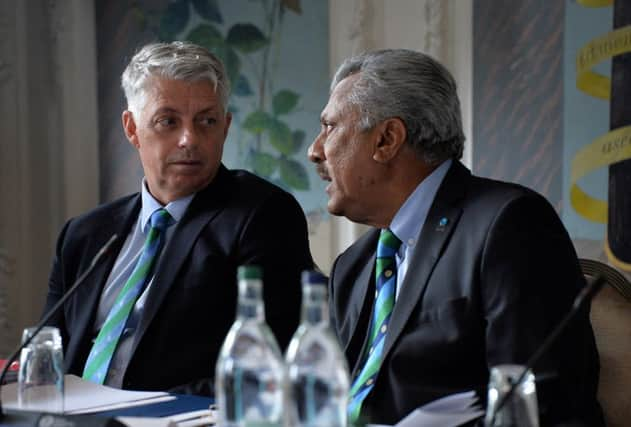Scotland set to get a bigger say in cricket


Tradition, as ever, will be clung on to. But the discussions held over the past five days might eventually be seen as a watershed that transports the game into the realms of a meritocracy that many, their hosts included, have long coveted.
The groundwork, sources at the governing body confirmed, has been laid for a new constitution that will remove much of the boundaries between cricket’s have-nots and have-everythings, not just at an oversight level but also on the field of play. Scotland face Afghanistan tomorrow in a one-day international at the Grange. For both Associates, fresh horizons are now within view.
Advertisement
Hide AdAdvertisement
Hide Ad“It’s no longer who is big or not big,” outgoing ICC president Zaheer Abbas told Scotland on Sunday. “It’s more a democracy. Cricket cannot be as good as it can be if some are not going to cooperate. It’s always good to sit together and solve the problems.” And there are many, not least the vicious decline of Test cricket and the growing acceptance that the glass walls constructed around showpiece World Cups must be shattered if the sport is to remain credible and global.
A new narrative will be constructed. India, it seems, are buying into the expansive vision of the ICC’s influential chair Shashank Manohar after much of the shambolic power grab of 2014, supported by England and Australia, was rolled back.
In formal talks, in the hotel bar, the cartel has splintered. “It’s been a real change,” a senior official of one Associate nation affirmed. “Twelve months ago, you showed up for the AGM and effectively you were told what was happening to you and that was it. Now, there’s actual dialogue which is positive. And there’s a real sense that they need the Associates now as much as we need them if they are serious about making this a global sport.”
Abbas played in Scotland many times as a cavalier batsman for Gloucestershire and Pakistan. He has lent his support to what is likely to become a merit-based pyramid involving a two-division Test Championship and an expansion of major tournaments. Outposts should become integral.
“I want to see every country come up,” he says. “I played county cricket for 14 years and I learnt so much every day from it. The attitude of professional cricket here was so good. Intikhab Alam, who was my captain when I came into the Pakistan team, played in Scotland. There were a few others. They came here to learn from the wickets you have.”
It will, as with everything, come down to cash. Cricket Scotland’s representatives have underlined that without some increase in their share from the ICC’s huge broadcast deal with Fox, it will remain prohibitively expensive to lure the calibre of international opponent required to become more self-sufficient. It is a vicious circle. Some will have to give so that others can receive.
“It’s persuading,” ICC chief executive David Richardson admitted. “It’s finding an optimal way of sharing the money. Because sharing it amongst too many people is also a bad idea. We have to be more targeted. It’s about the sport coming together.”
Teenage spinner Mark Watt is expected to be given a chance against the Afghans tomorrow with Preston Mommsen’s men bidding for a rankings lift in the two-match series.